Are you looking to make a career change in the New Year? Whether your reason is for a better salary or more meaningful work, now’s a good time to start planning out how you’re going to approach your job search.
One important aspect involves your cover letter. This document can help you explain your reason for the change and also set you apart from other candidates. Here are some tips to consider when you’re writing it:
Focus on your strengths.
You want to open up the conversation in the best way possible, which is by talking about why you’re a great fit for the job. Highlight your most impressive achievements that are relevant to the role. This can include:
- Hitting certain sales numbers in a short amount of time.
- Managing a team through a challenging project.
- Spearheading an initiative that proved important to an employer’s bottom line.
Even if these don’t offer direct, job-related experience, they should showcase your work ethic and ability to add value. In addition, talk about the unique perspective you’ve gained through these accomplishments. At this point, you want to get the hiring manager’s attention and not share too much about your lack of experience.
Discuss specifics about the company.
Besides discussing your strengths, discuss what you’ve learned about the company and how you can help support its mission through your abilities and experience. Go into detail and explain those transferable skills you have that will translate well into this particular organization or role. This can include anything from knowledge of a certain software system, or communication or leadership abilities. Align these with the company’s needs to show you’ve done your homework and to make yourself more memorable.
Talk about why you’re changing careers.
Don’t ignore the elephant in the room. It’s going to become apparent to the hiring manager you’re making a switch as soon as they read your resume. However, turn it into a positive. Talk about what first made you want to change careers, what’s since attracted you to this particular field, and why you want to work for this specific company. Also, be sure to promote the fact that you’re a fast learner and eager to gain new skills.
Show your enthusiasm.
One edge you might have is your enthusiasm factor. So let it shine! Explain why you’re excited to learn more about the position and the company and what enticed you to the posting. Make it clear throughout your cover letter that you’re interested in this opportunity and ready to make a change, even if it means starting out in an entry-level role.
While changing careers can make your job search more challenging, approaching your cover letter right will help you show employers you’re still a great fit. After all, hard work, ingenuity and enthusiasm can’t be taught and it’s often what hiring managers are looking for in their next great employee.
Need more help writing your career switch cover letter?
ResumeSpice is here for you. Your cover letter is the ideal place to open the conversation about your career change and our team of writers knows how to best do it. We’ll also showcase your strengths, accomplishments and enthusiasm for the job, so you get noticed and a call for an interview. If you’re ready to learn more, call 832.930.7378 or contact us online.






